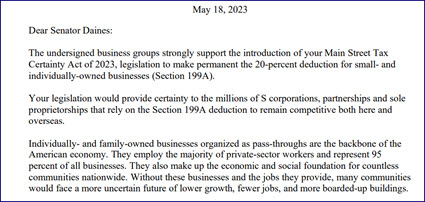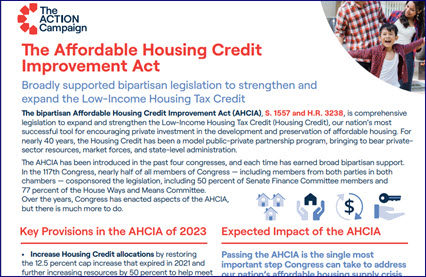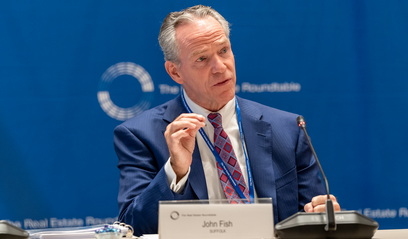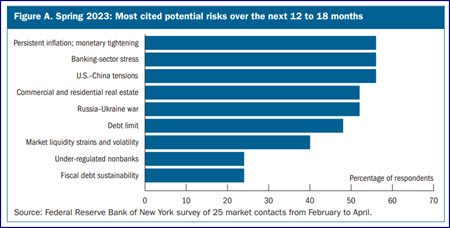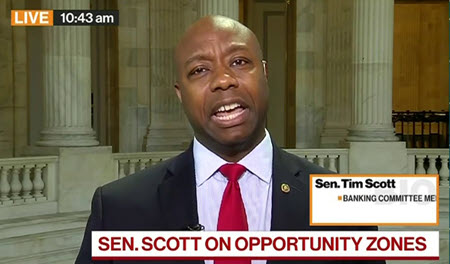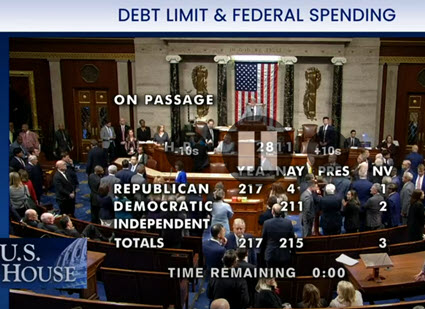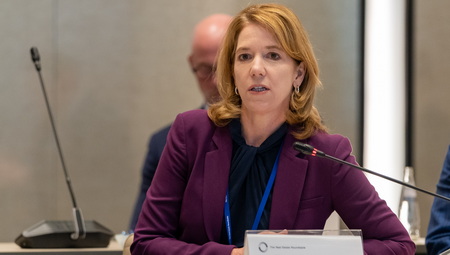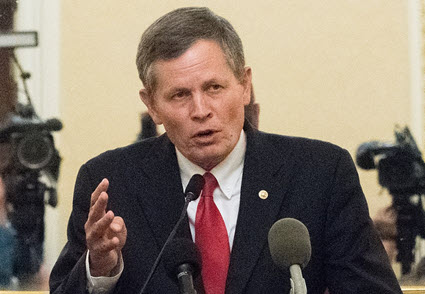
Yesterday, Senate Finance Committee member Steve Daines (R-MT) reintroduced legislation to make permanent the 20 percent deduction for pass-through business income (Section 199A), one of the cornerstone provisions of the Tax Cuts and Jobs Act of 2017 that expires at the end of 2025.
Deduction Sunset
- The Main Street Tax Certainty Act of 2023 supports small businesses, helps create jobs, and strengthens the economy. (Sen. Daines’ news release, May 18)
- House Ways and Means Committee Chairman Jason Smith (R-MO), who has long championed making Section 199A permanent, is anticipated to re-introduce the legislation in the House soon.
- In 2017, Congress created the 20% deduction for pass-through business income to avoid putting businesses organized as partnerships, S corporations (S corps), and real estate investment trusts (REITs) at a competitive disadvantage relative to large C corporations (C corps).
- Section 199A is scheduled to sunset on Dec. 31, 2025 as businesses continue to recover from post-pandemic price hikes, labor shortages, and supply chain disruptions.
Section 199A Permanency
- The Real Estate Roundtable and a coalition of more than 145 business organizations sent a letter yesterday to Sen. Daines in support of the bill. (Coalition letter, May 18)
- The letter notes that the bill “would provide certainty to the millions of S corporations, partnerships and sole proprietorships that rely on the Section 199A deduction to remain competitive both here and overseas.”
- Previously, The Roundtable and other stakeholders supported congressional efforts in 2021 to make the pass-through deduction permanent. (Coalition letter, Feb. 26, 2021 and Tax Notes, March 1, 2021)
While House Republicans are expected to introduce an economic growth package in the coming weeks that includes tax cuts, it is unclear whether the bill will address provisions such as Section 199A that are not scheduled to expire until the end of 2025.
# # #
